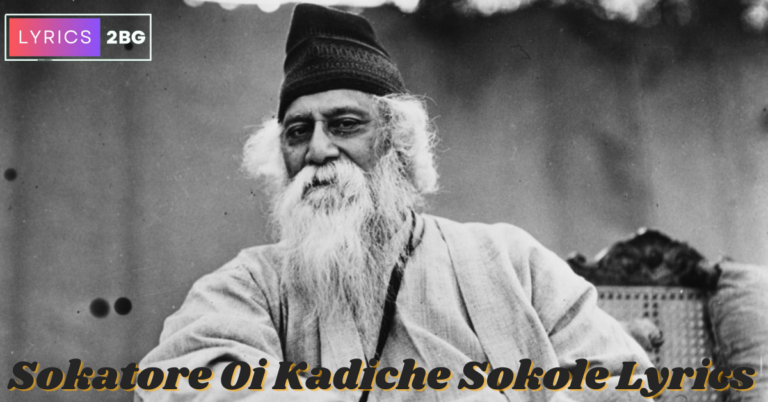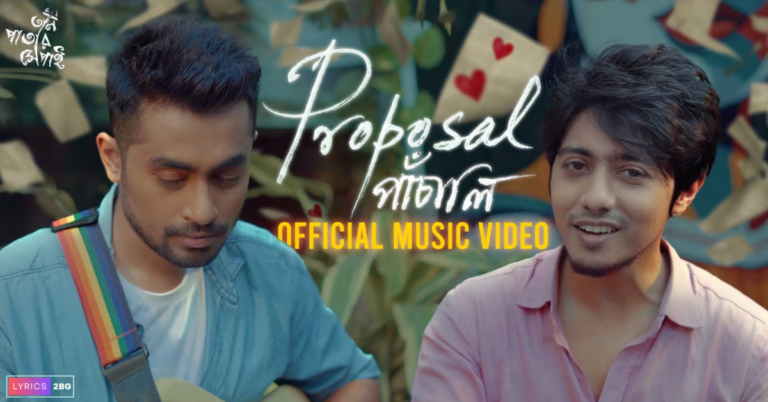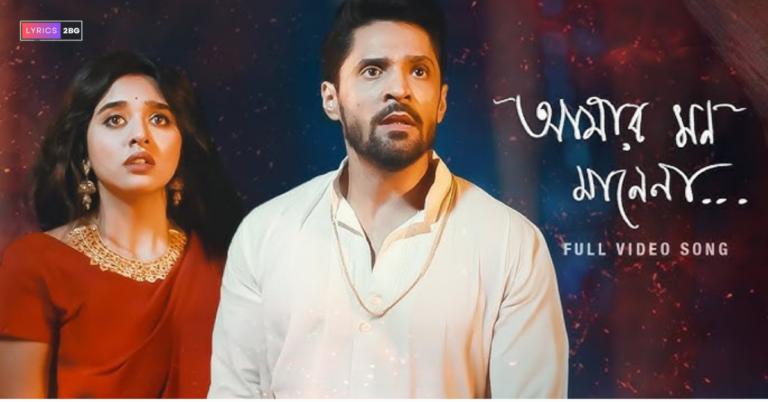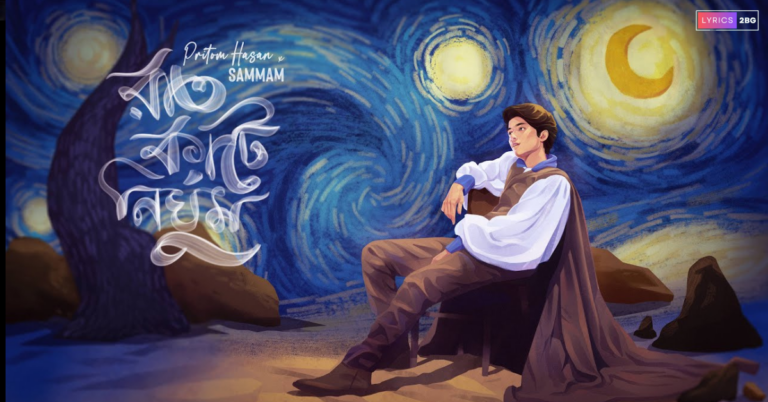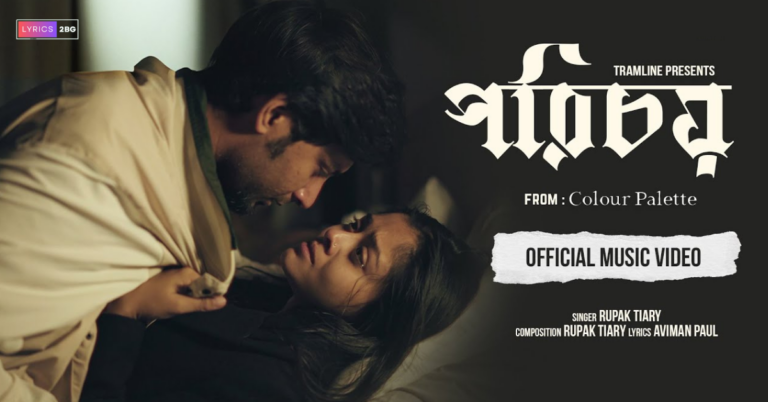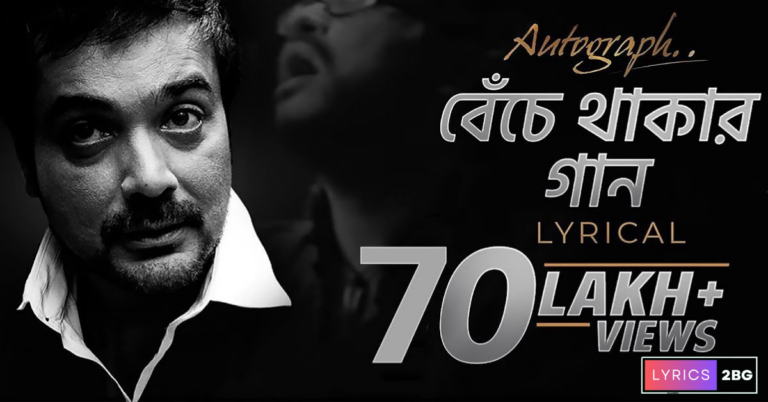Dushtu Kokil Lyrics | দুষ্টু কোকিল | Toofan
Dushtu Kokil Lyrics
ফাগুন মাসে কাঁচা বাঁশে
গুনগুনিয়ে ভ্রমর আসে,
হায় ফাগুন মাসে কাঁচা বাঁশে
গুনগুনিয়ে ভ্রমর আসে,
প্রেমের লাগে বুকটা করে আ আ উ
দুষ্টু কোকিল ডাকে রে কুকু কুকু, কুকু কুকু
মনে বাঁশি বাজে রে কুকু কুকু, কুকু কুকু।
চোখে চোখে কথা বলো
মুখে কিছুই বলো না,
ভালোবাসার নামে কেন
করো শুধুই ছলনা।
হ্যাঁ, চোখে চোখে কথা বলো
মুখে কিছুই বলো না,
ভালোবাসার নামে কেন
করো শুধুই ছলনা।
থাকলে তুমি আশেপাশে
মনে আমার আবেগ আসে,
প্রেমের লাগে বুকটা করে আ আ উ
দুষ্টু কোকিল ডাকে রে কুকু কুকু, কুকু কুকু
মনে বাঁশি বাজে রে কুকু কুকু, কুকু কুকু।
নদীর বুকে চর, আমি কি তোর পর
আকাশ ভরা চাঁদের আলোয়
বাঁধবো সুখের ঘর। (২)
ধিকি ধিকি জ্বলে আগুন
জলের ছিটায় নেভে না,
খোলা আছে মনের দুয়ার
বাইরে তুমি থেকো না। (২)
পথ চেয়ে আছি বসে
কখন তুমি আসবে পাশে,
প্রেমের লাগে বুকটা করে আ আ উ
দুষ্টু কোকিল ডাকেরে কুকু কুকু, কুকু কুকু
মনে বাঁশি বাজেরে কুকু কুকু, কুকু কুকু।
ফাগুন মাসে কাঁচা বাঁশে
গুনগুনিয়ে ভ্রমর আসে,
হায় ফাগুন মাসে কাঁচা বাঁশে
গুনগুনিয়ে ভ্রমর আসে,
প্রেমের লাগে বুকটা করে আ আ উ
দুষ্টু কোকিল ডাকেরে কুকু কুকু, কুকু কুকু
মনে বাঁশি বাজে রে কুকু কুকু, কুকু কুকু।
Meaning of Dushtu Kokil Lyrics
Dushtu Kokil lyrics evokes the atmosphere of spring (ফাগুন মাসে), characterized by the fresh, tender green bamboo shoots (কাঁচা বাঁশে) swaying in the breeze. It celebrates the arrival of springtime, a season of love and renewal in Bengali culture. Through its lyrics, the song beautifully captures the essence of love, nature, and human emotions.
Dushtu Kokil lyrics opens with imagery of the buzzing bee humming around the bamboo shoots, symbolizing the arrival of spring and the awakening of love. It paints a vivid picture of nature coming alive, and how these natural elements resonate with human emotions, particularly love. The repetitive chorus “দুষ্টু কোকিল ডাকে রে কুকু কুকু, মনে বাঁশি বাজে রে কুকু কুকু” reflects the playful and flirtatious nature of love, likening it to the call of a mischievous cuckoo bird and the melodious sound of bamboo flutes.
Dushtu Kokil lyrics verses highlight a contrast between outward expressions and inner emotions. The line “চোখে চোখে কথা বলো, মুখে কিছুই বলো না” suggests a reluctance to openly express feelings, perhaps due to societal norms or personal hesitation. It questions why love is often masked under deception or pretense (“ভালোবাসার নামে কেন করো শুধুই ছলনা”), hinting at the complexities and challenges of romantic relationships.

The chorus reiterates the joy and longing associated with love during springtime, portraying how love can stir one’s heart (“প্রেমের লাগে বুকটা করে আ আ উ”). It emphasizes the natural beauty and serenity of the surroundings, where the riverbank, the moonlit sky, and the warmth of love create a harmonious and idealistic setting (“নদীর বুকে চর, আমি কি তোর পর”).
Throughout the song, there’s a recurring motif of waiting and longing (“পথ চেয়ে আছি বসে”), highlighting the emotional tension and anticipation associated with love. The lyrics capture the essence of traditional Bengali folk songs, where nature’s beauty and human emotions intertwine seamlessly, reflecting the cultural richness and poetic sensibility of Bengali literature and music.
In summary, Dushtu Kokil lyrics celebrates the arrival of spring and the complexities of love through evocative imagery and poignant lyrics. It encapsulates the essence of Bengali folk music, where nature serves as a backdrop for exploring human emotions, particularly the joys and tribulations of love during this vibrant season.
About the Author of the Song

Dushtu Kokil is a Bengali song sung by Kona & Akassh. Dushtu Kokil lyrics of the song were written by Akassh. Dushtu Kokil tune and music of the song were composed by Akassh. Programming for the song was done by Bob SN, and guitar, mandolin, and banjo were played by Babni. Dushtu Kokil song was recorded by Selim Reza at Focus Studio Dhaka, Bangladesh, and Rabi Majee at Studio Hansadhwani, Kolkata. Dushtu Kokil was released on the SVF YouTube channel on Jun 20, 2024.
Singer : Kona & Akassh
Lyrics: Akassh
Tune & Music : Akassh
Programming: Bob SN
Guitar Mandolin & Banjo : Babni
Recorded By : Selim Reza ( Focus Studio Dhaka, Bangladesh) & Rabi Majee ( Studio Hansadhwani, Kolkata)


